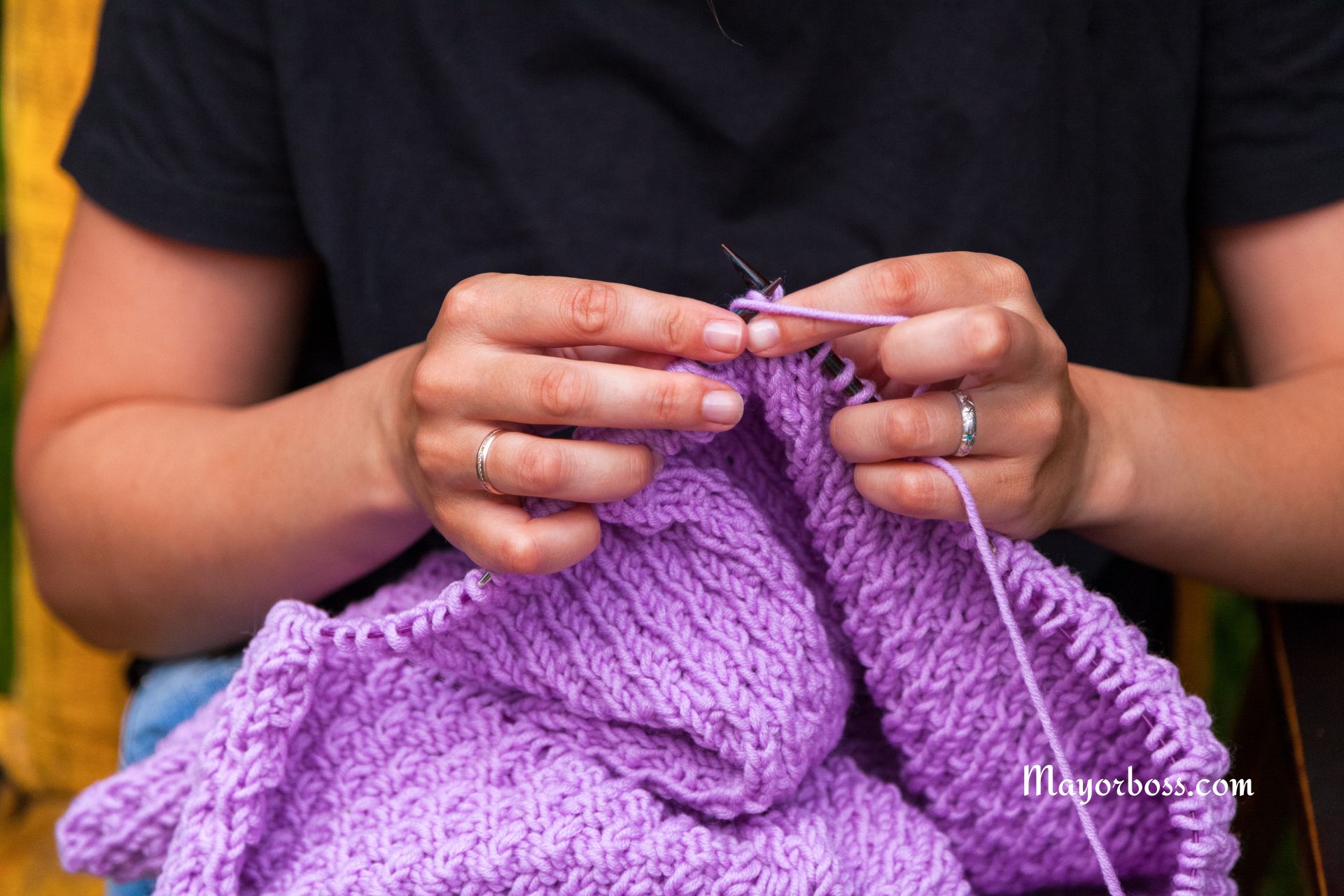7 Effects of Knitting on the Body and Mind
Knitting is often viewed as a simple, relaxing hobby, but it has a range of impressive benefits for both the body and mind. Here are seven effects that knitting can have:

1. Stress Reduction
Believe it or not, knitting is a fantastic stress reliever. The rhythmic motions and focus required can help calm your mind, acting much like meditation. You see when you’re knitting, your brain enters a state similar to that achieved through mindfulness or meditation, reducing cortisol levels and promoting a sense of tranquility.
2. Improved Fine Motor Skills
Knitting involves a variety of hand movements that can significantly enhance your fine motor skills. Over time, this activity helps strengthen the muscles in your hands and fingers and improves coordination. So, if you’re looking to keep your fingers nimble, knitting could be the answer.
3. Enhanced Cognitive Function
You might not think so, but knitting can boost your brainpower. The process requires concentration, memory, and spatial awareness, all of which contribute to better cognitive functioning. Research suggests that crafts like knitting can even lower the likelihood of cognitive decline as you age.
4. Lowered Blood Pressure
Knitting can help with blood pressure? Yes, it’s true! The calming effect of knitting has been linked to lower blood pressure. By reducing stress and anxiety, knitting helps promote a more relaxed state, which in turn can lead to healthier blood pressure levels.
5. Emotional Well-Being
Knitting isn’t just good for the body; it’s great for emotional health, also. Completing a knitting project gives a sense of accomplishment, which can boost self-esteem and provide a positive mood lift. And guess what? The social aspect of joining knitting groups can combat loneliness and depression by fostering connections with others.
6. Pain Management
Surprisingly enough, knitting can serve as a form of pain management. The repetitive actions can distract from chronic pain by shifting the focus away from discomfort and toward a productive, enjoyable activity. This psychological diversion can be a helpful tool in managing long-term pain conditions.
7. Sleep Improvement
If you’re struggling with sleep, knitting before bed can help. The soothing, meditative nature of knitting can ease the transition into sleep, helping you relax and clear your mind of the day’s worries. So, knitting a few rows might just be the key to a better night’s rest.
Frequently Asked Questions
Can knitting really improve mental health?
Absolutely. The repetitive, rhythmic motions of knitting help induce a calming effect, similar to meditation, which can significantly improve mental health by reducing stress and anxiety levels.
Is knitting suitable for all ages?
Yes, knitting is an excellent activity for all ages. It helps younger people develop fine motor skills and concentration, while older adults benefit from its cognitive and social aspects.
How long does it take to see the benefits of knitting?
The benefits of knitting can be felt almost immediately in terms of relaxation and stress relief. However, long-term benefits like improved motor skills and cognitive function develop over time with regular practice.
So there you have it! Knitting isn’t just a way to create beautiful garments and gifts; it’s also a powerful tool for maintaining and improving physical and mental health. Give it a try, and you might be surprised by how much it can help!
